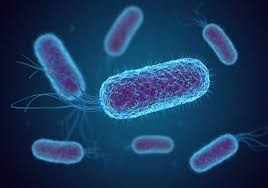- Teacher: Admin User
Destiny transformers
-
Welcome to your

Now, you are in control!
Moodle is an open-source Learning Management System (LMS) that provides educators with the tools and features to create and manage online courses. It allows educators to organize course materials, create quizzes and assignments, host discussion forums, and track student progress. Moodle is highly flexible and can be customized to meet the specific needs of different institutions and learning environments.
Moodle supports both synchronous and asynchronous learning environments, enabling educators to host live webinars, video conferences, and chat sessions, as well as providing a variety of tools that support self-paced learning, including videos, interactive quizzes, and discussion forums. The platform also integrates with other tools and systems, such as Google Apps and plagiarism detection software, to provide a seamless learning experience.
Moodle is widely used in educational institutions, including universities, K-12 schools, and corporate training programs. It is well-suited to online and blended learning environments and distance education programs. Additionally, Moodle's accessibility features make it a popular choice for learners with disabilities, ensuring that courses are inclusive and accessible to all learners.
The Moodle community is an active group of users, developers, and educators who contribute to the platform's development and improvement. The community provides support, resources, and documentation for users, as well as a forum for sharing ideas and best practices. Moodle releases regular updates and improvements, ensuring that the platform remains up-to-date with the latest technologies and best practices.
Links of interest:
(You can edit or remove this text)
Available courses
This unit specifies the competencies required to carry out parasitological techniques. It involves carrying out protozoology and carrying out helminthology.
- Teacher: Admin User
- Teacher: Admin User
This unit specifies the competencies required to carry out microscopy. It involves applying types of microscopy, determining parts of a microscope, carrying out micrometry and carrying out care and maintenance of microscopes.
- Teacher: Admin User

This unit specifies the competencies required to perform pharmacological and toxicological techniques. It involves determining classification of drugs, applying pharmacodynamics and demonstrating chemotherapeutic agents. It also involves applying phamarcokinetic, carrying out extraction of toxins and carrying out toxicity testing.
- Teacher: Admin User
This unit specifies the competencies required to perform anatomy and physiology studies. It involves demonstrating communication in plants and animals, demonstrating nutrition in plants and animals and demonstrating transport in plants and animals. It also involves applying support and locomotion in animals, demonstrating reproduction in plants and animals and demonstrating excretion in plants and animals.
- Teacher: Admin User
